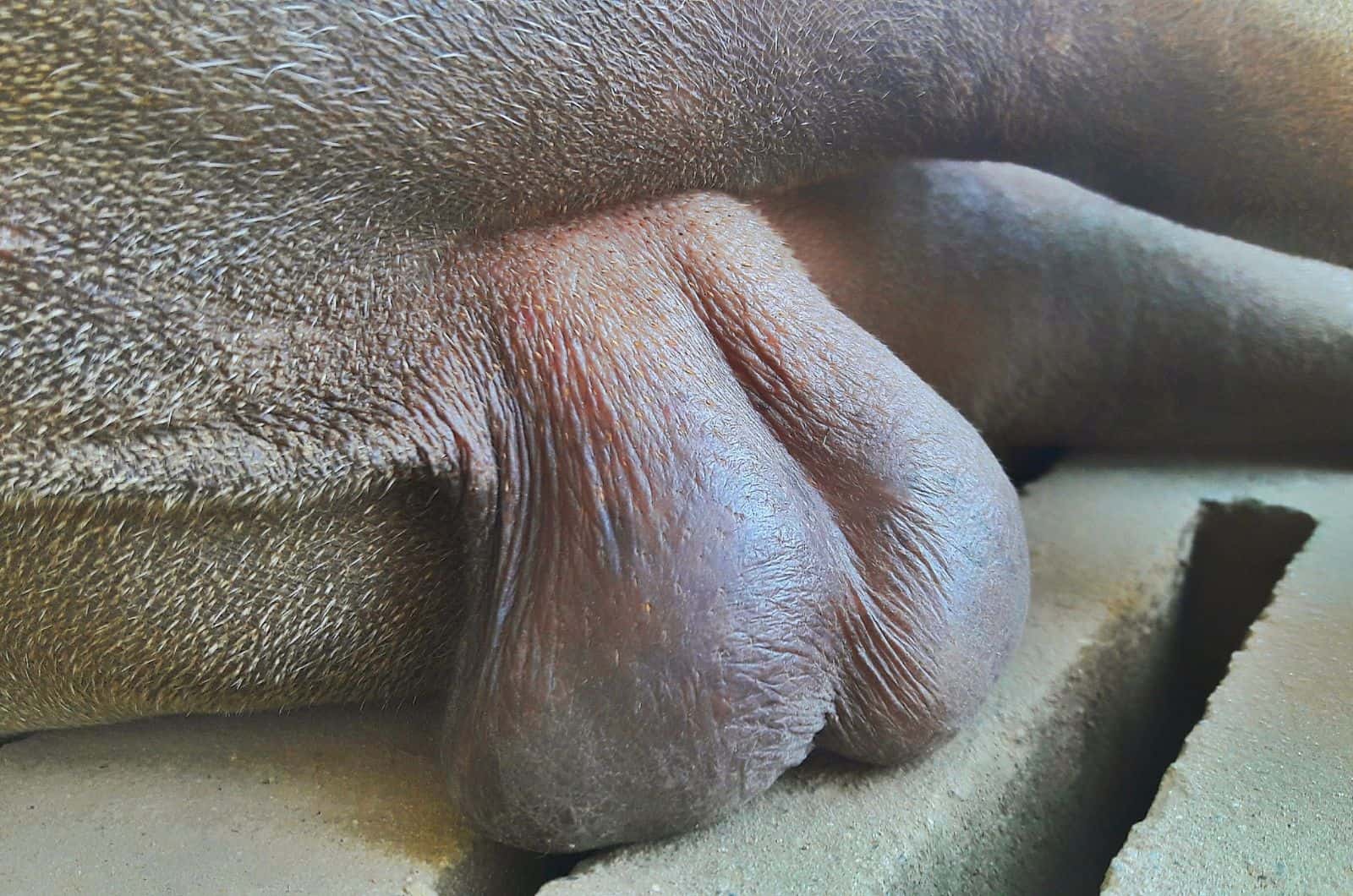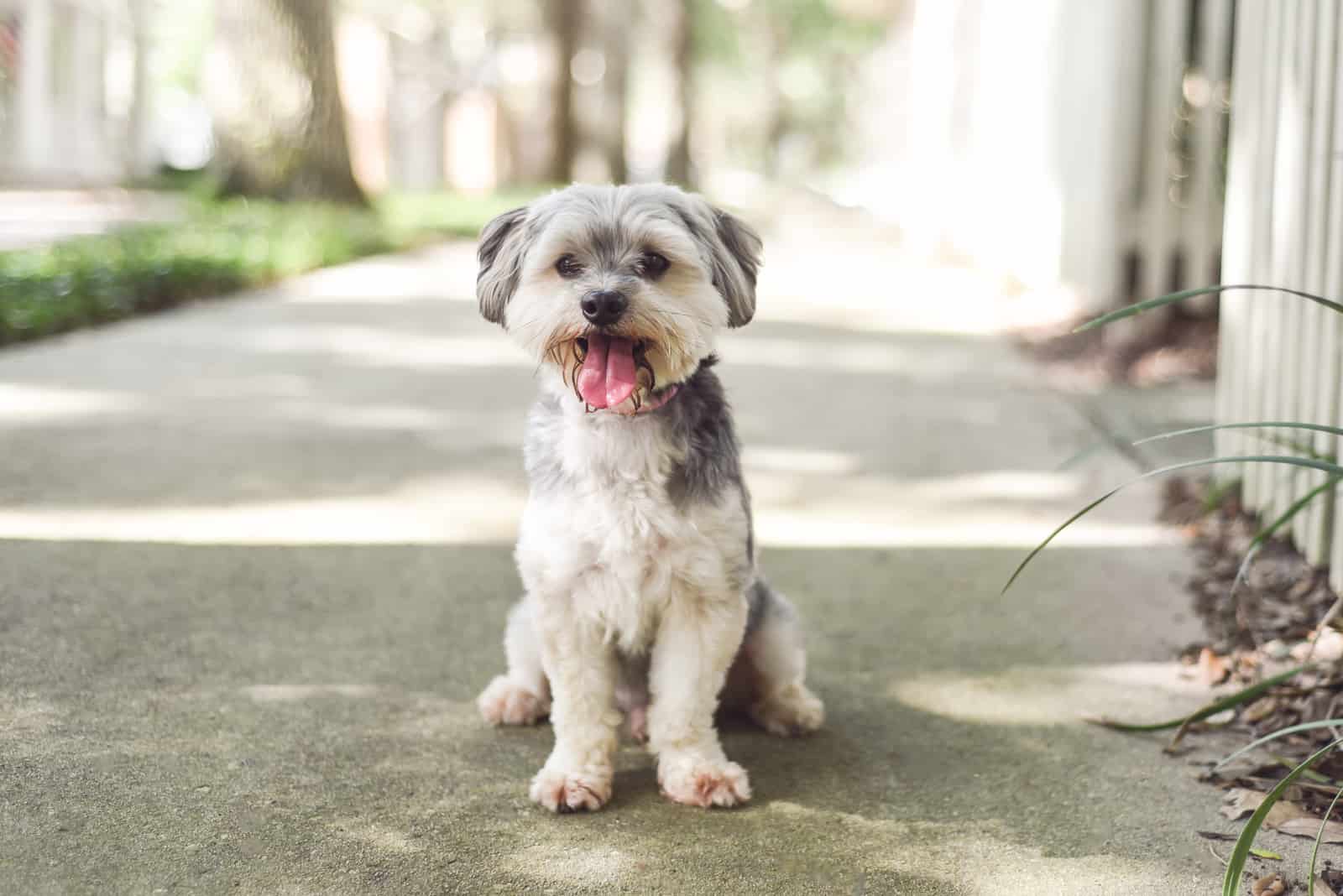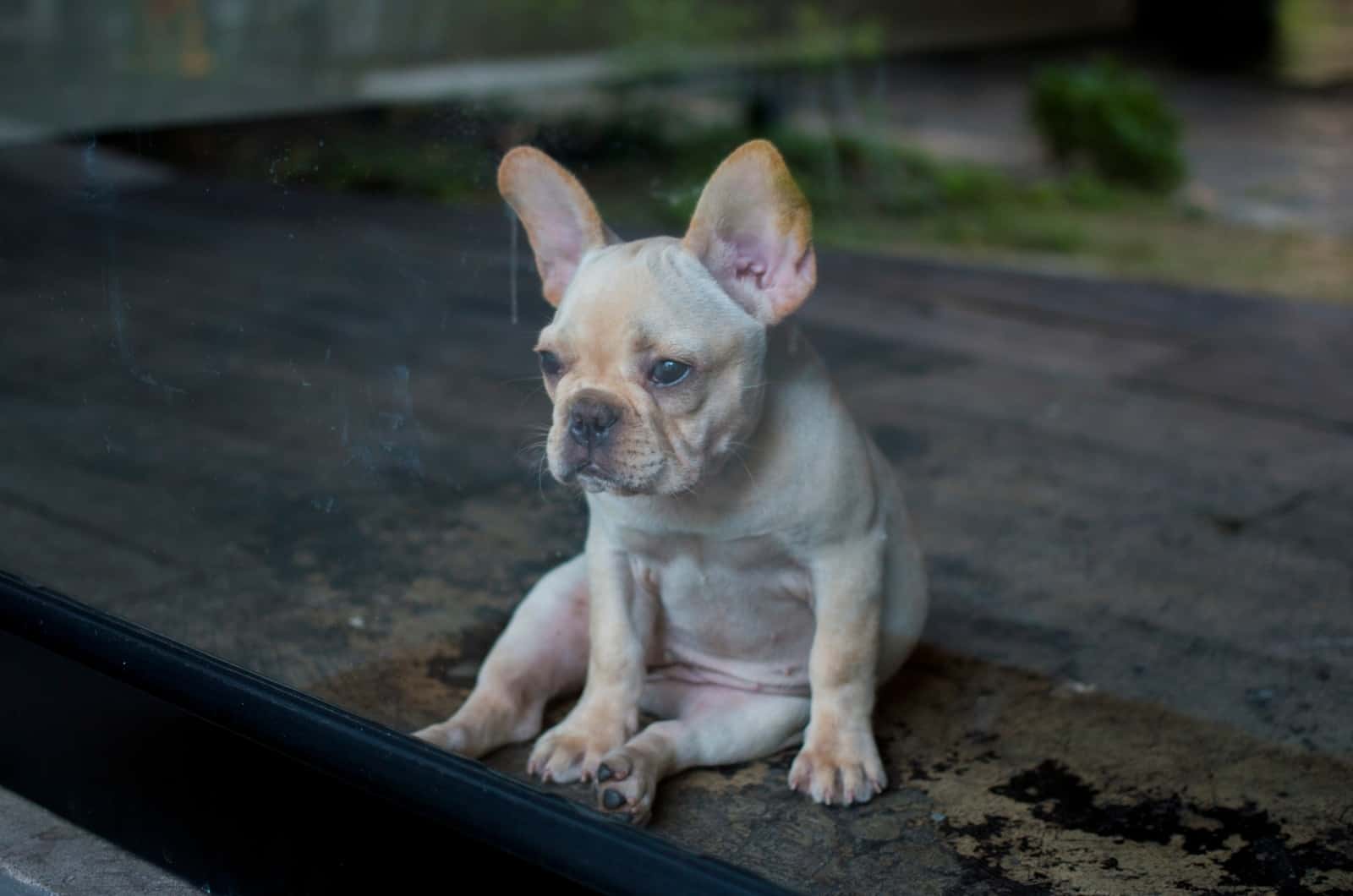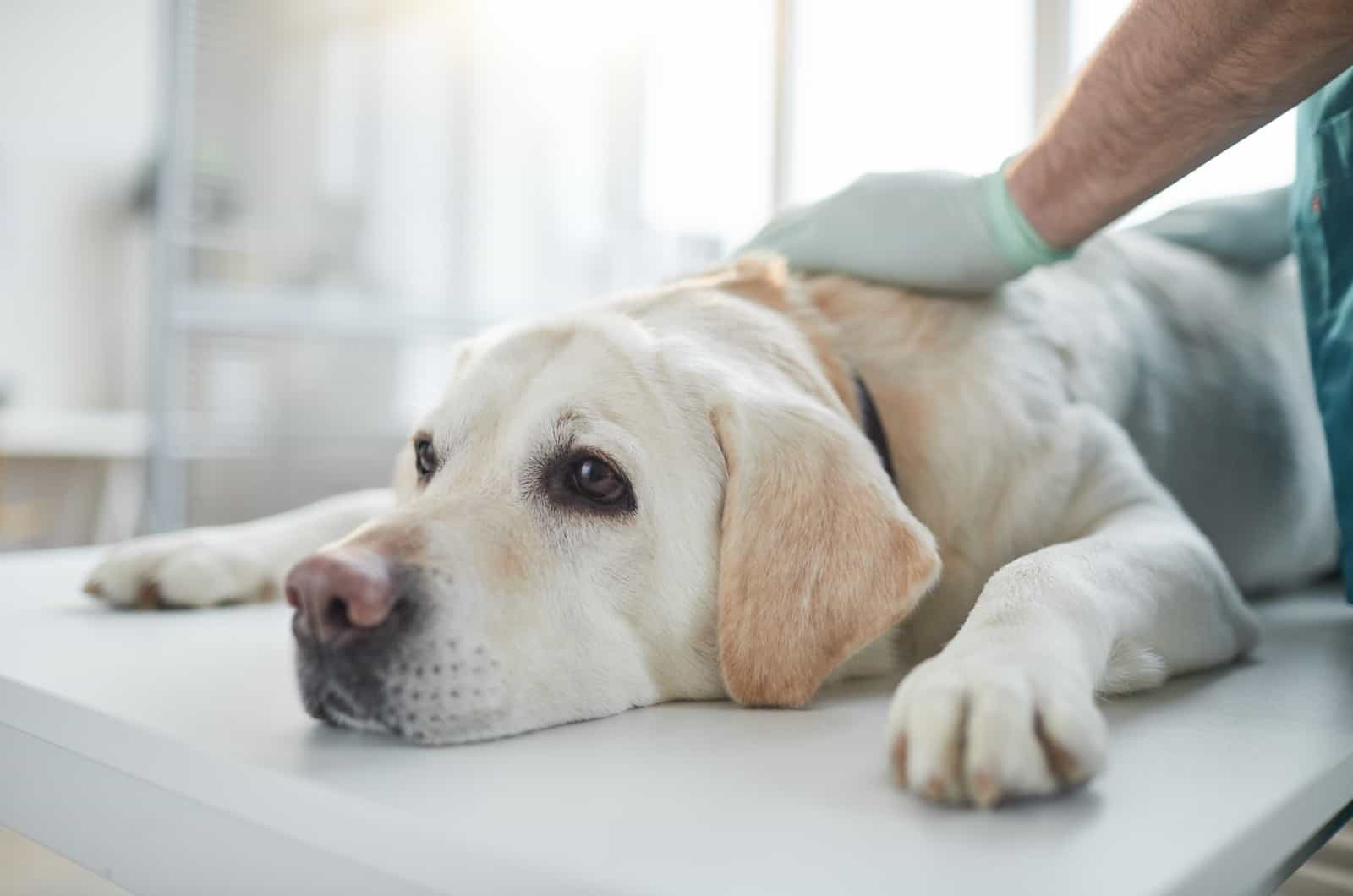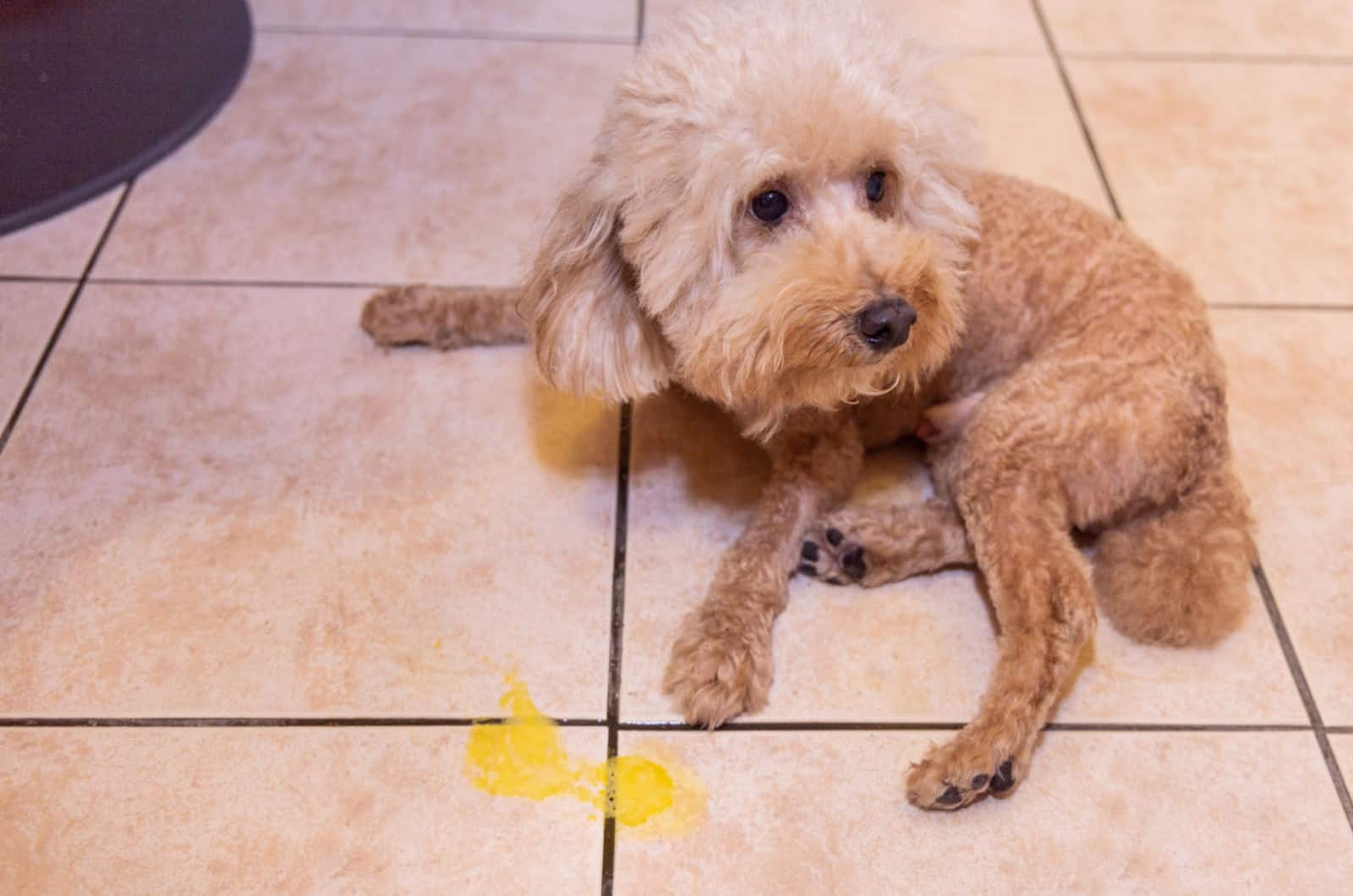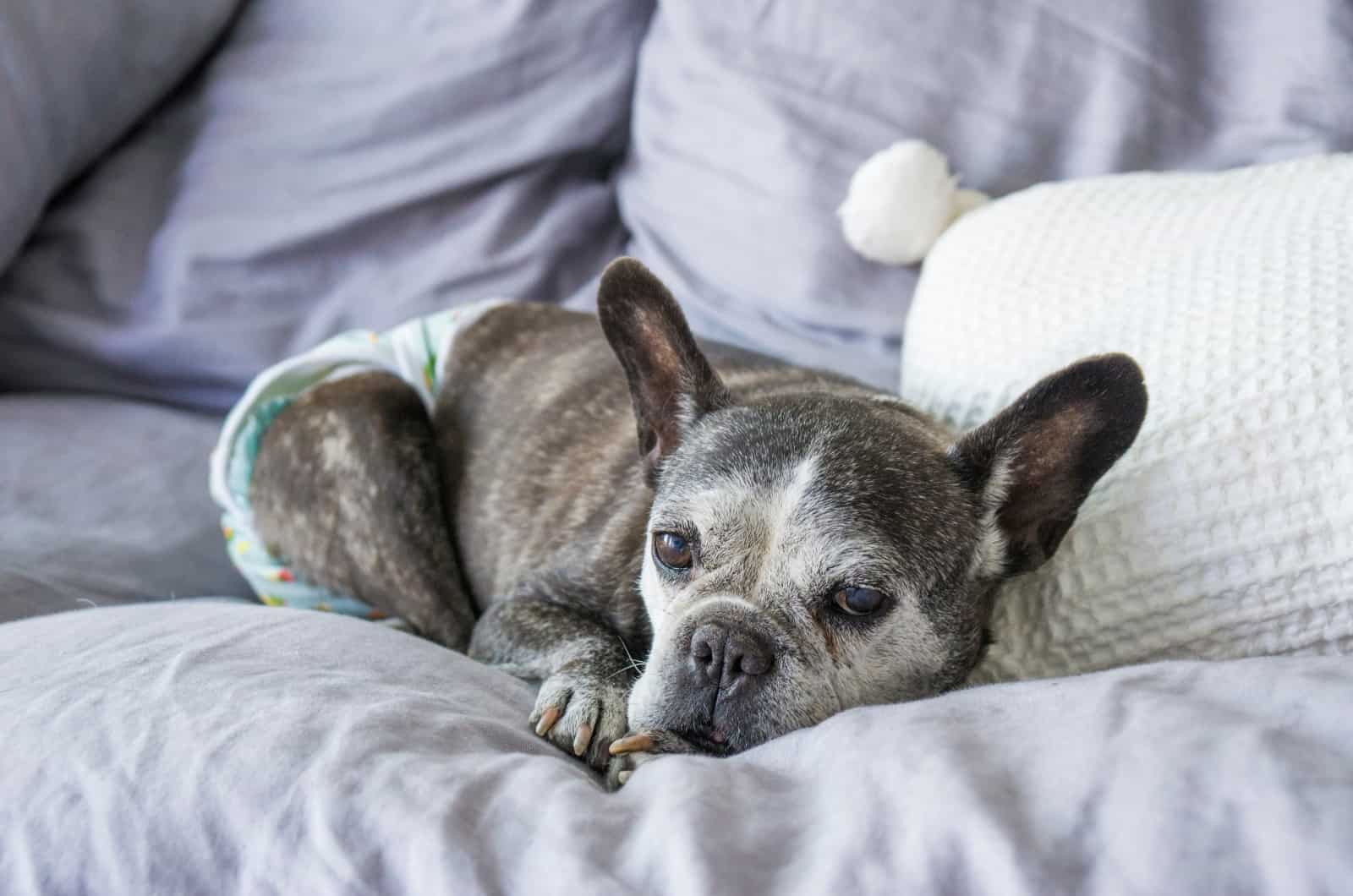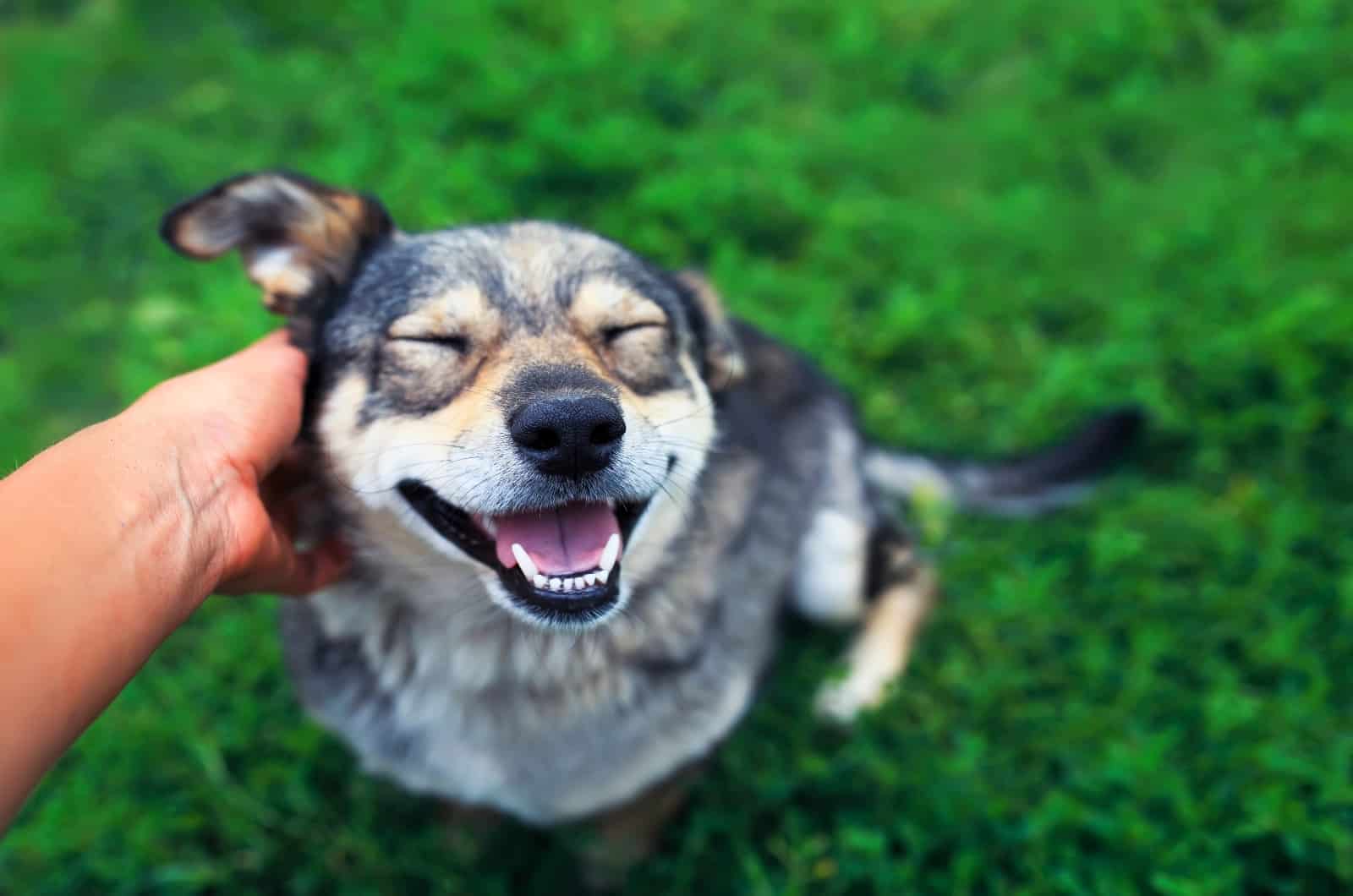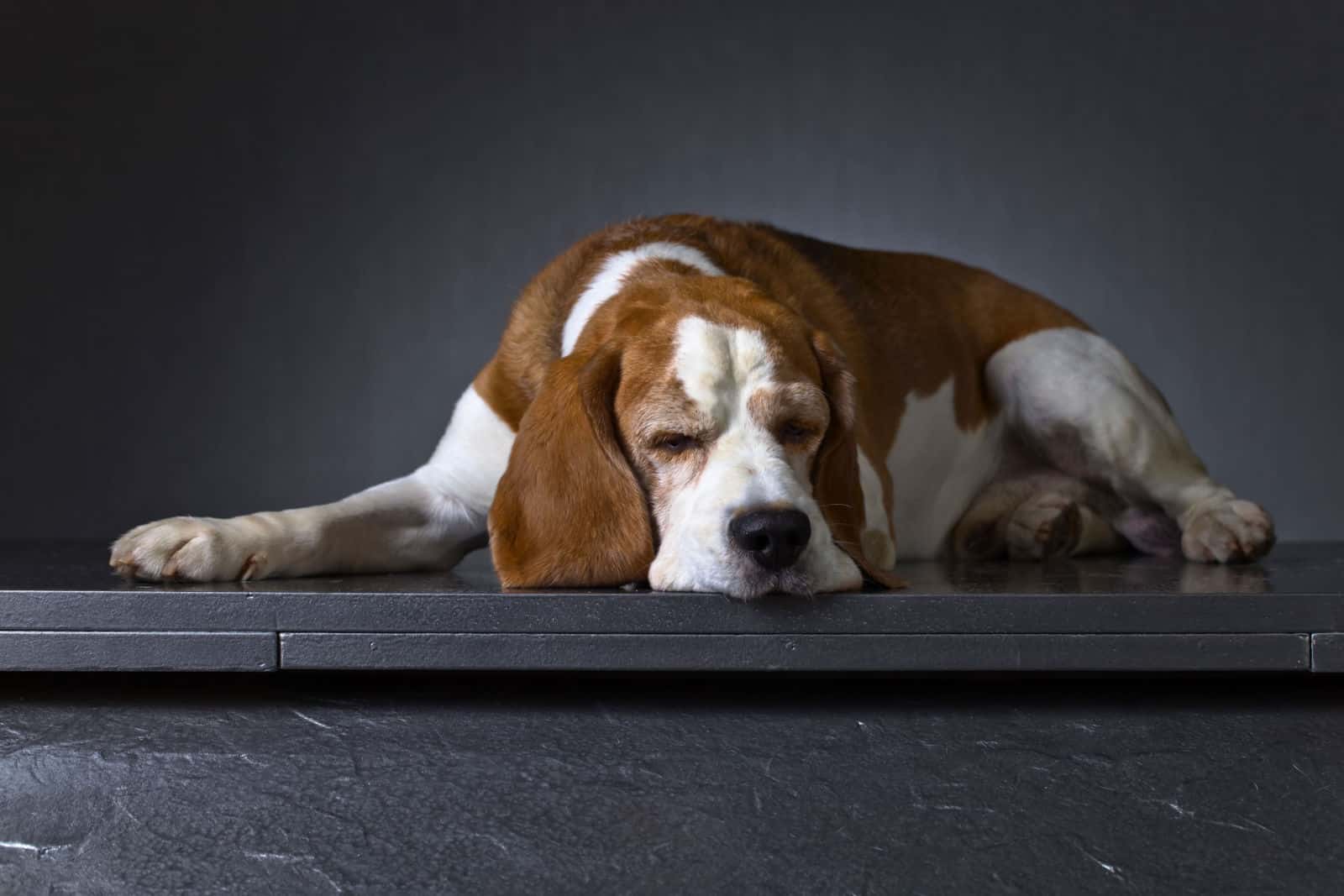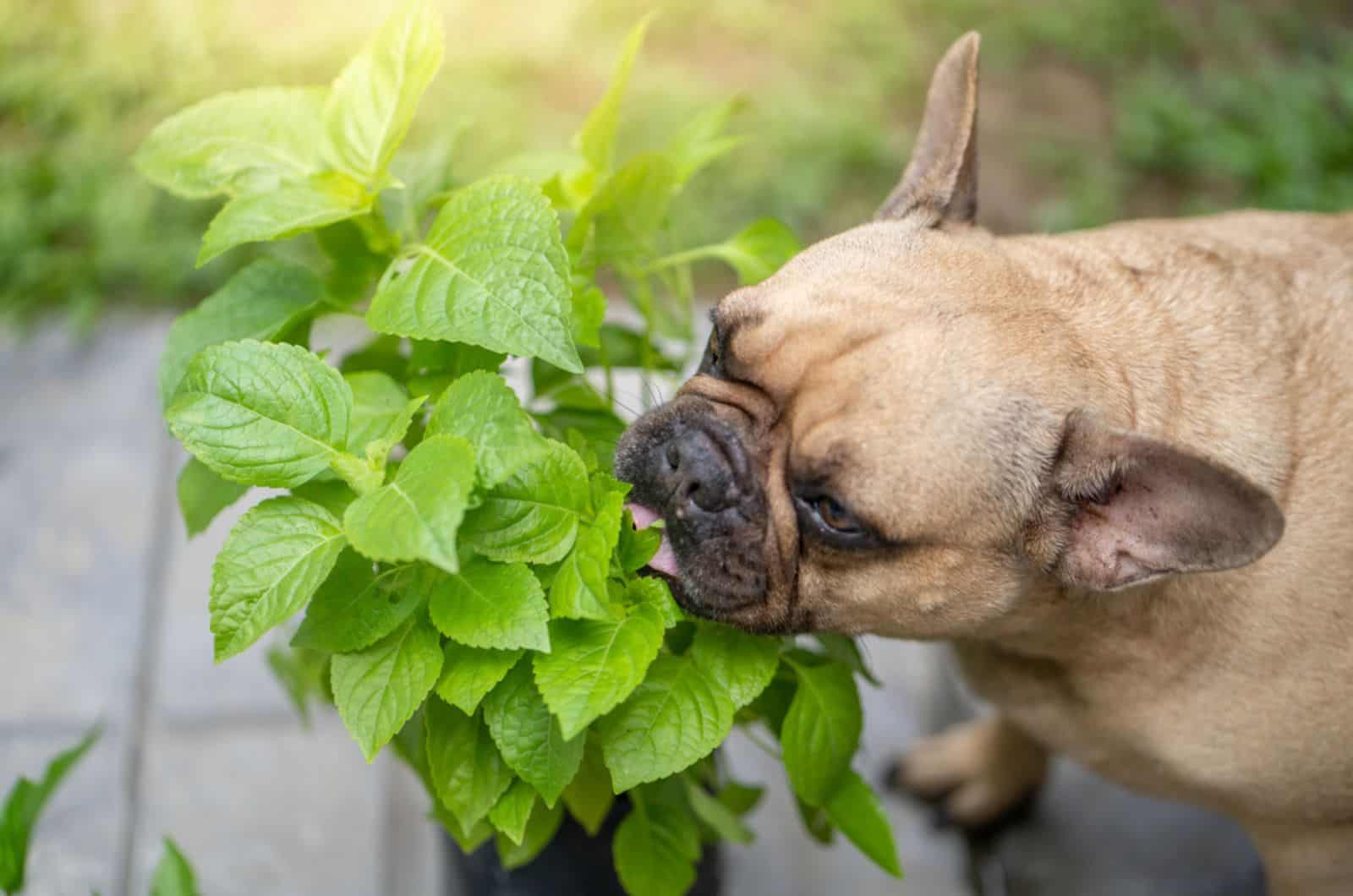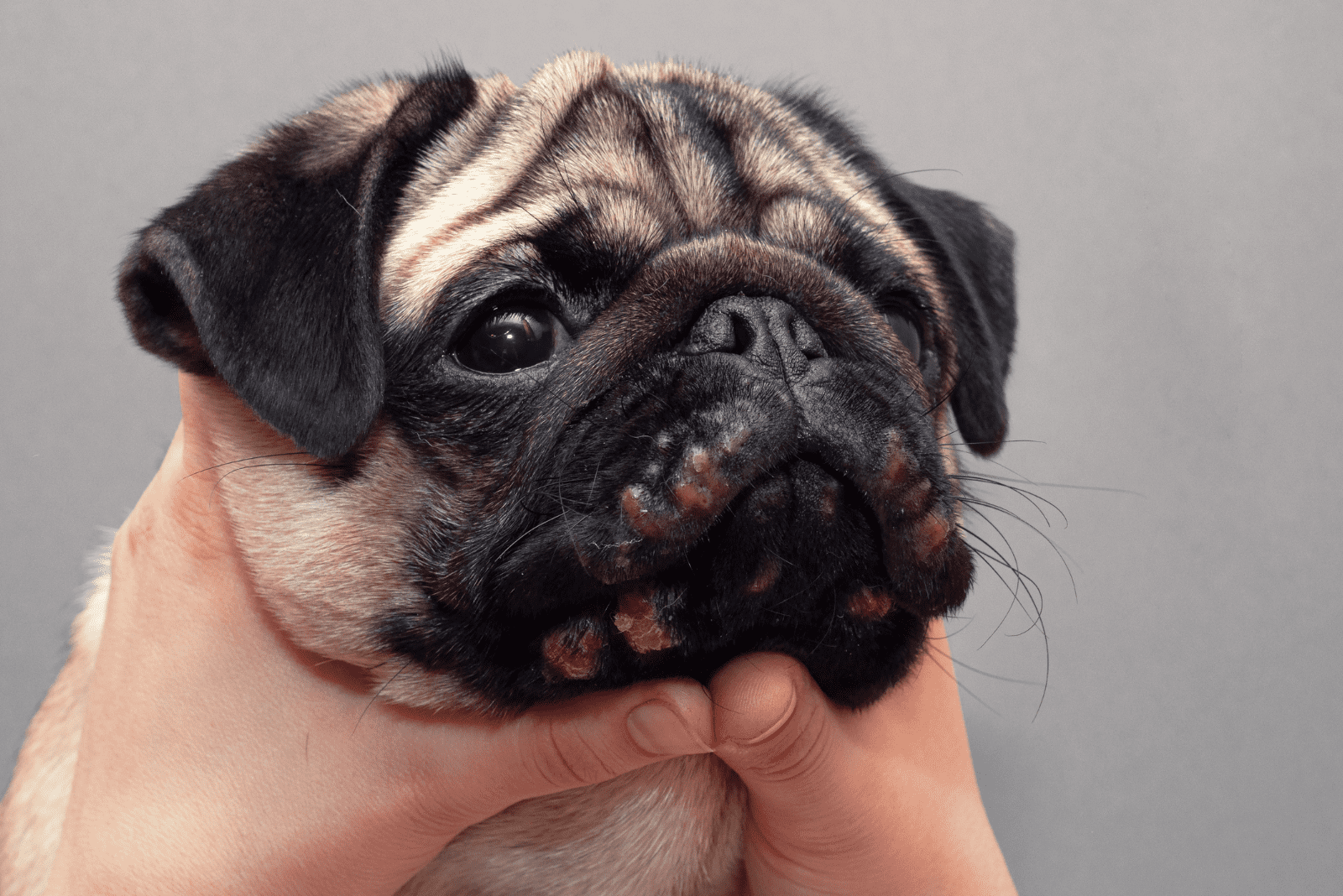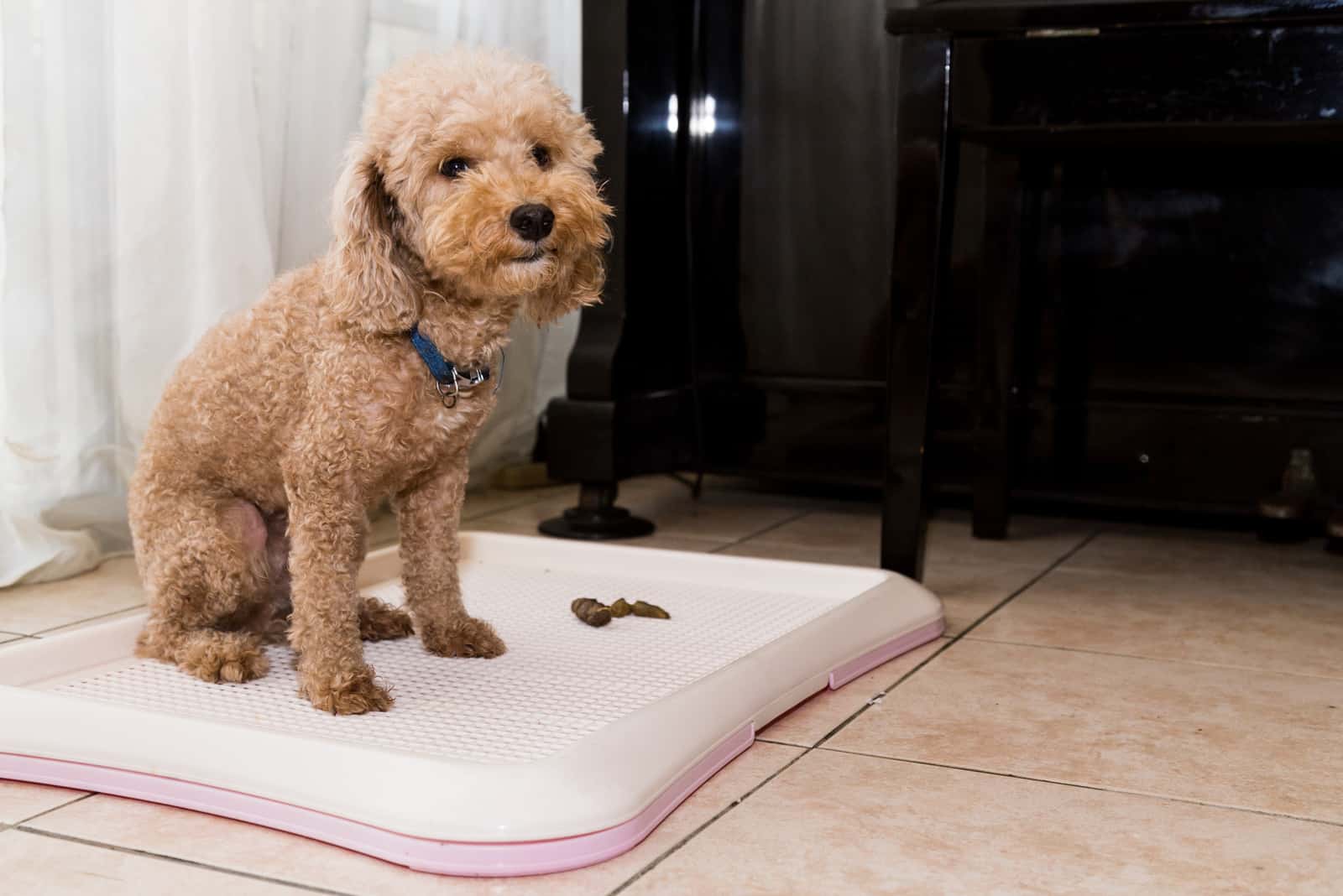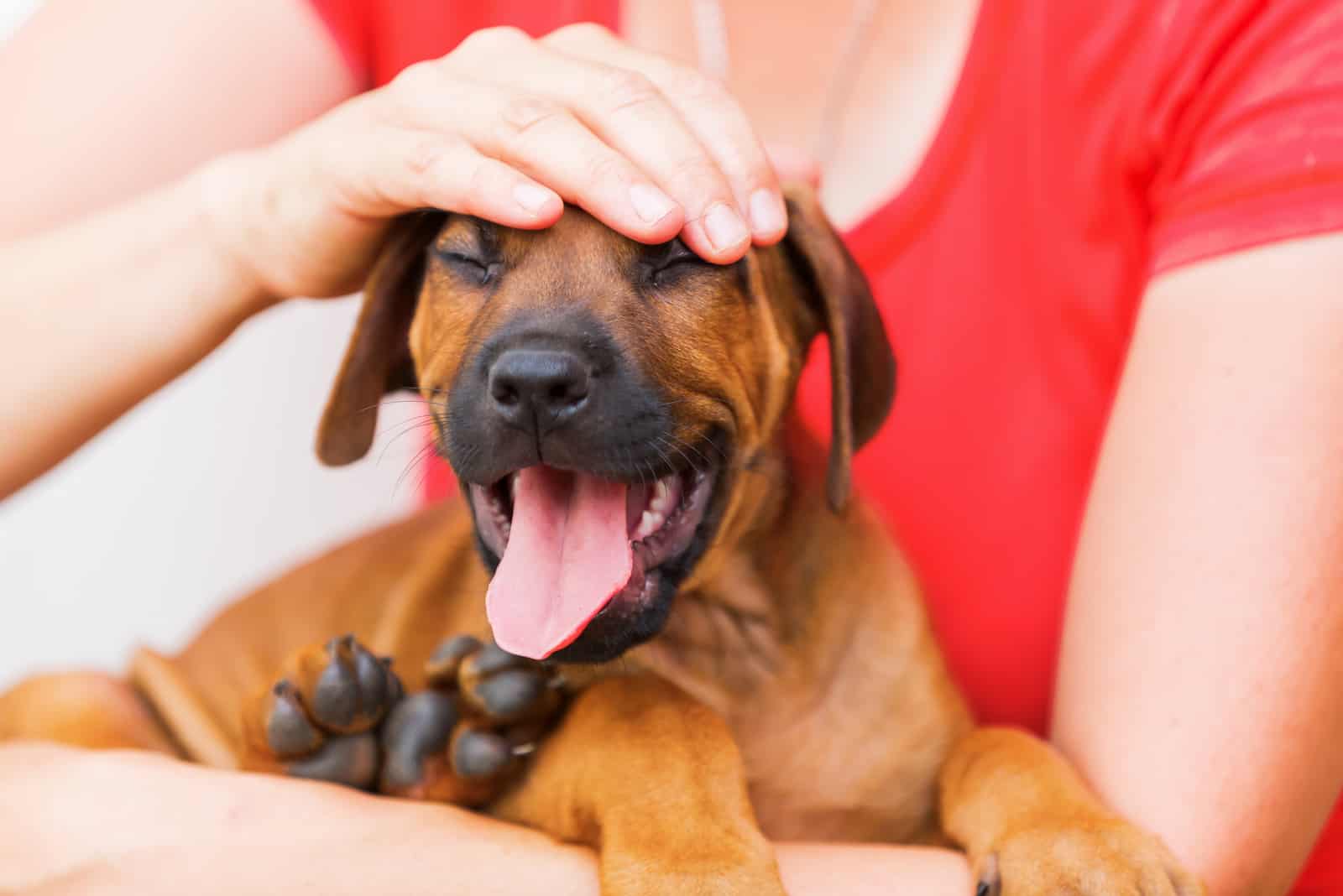The Great Dane is a large and strong dog breed that originated in Germany. In the past, this dog was used for wild boar hunting and for bullfighting, while today many people have found their favorite family pet in this big dog.
The Great Dane is such an affectionate and loyal dog that many people call it the gentle giant. This dog will enjoy living in a house with a big yard, but will not make a good choice for people living in small apartments.
This gentle giant is a big, elegant dog with an athletic body and a big head. In general, a Great Dane should be muscular, strong, and lean, so you might be surprised to hear of a fat Great Dane.
Some Great Danes might have more muscle mass than others, but, in general, these dogs should be slim and have a defined waist.
However, there is a possibility for your Great Dane to become overweight, due to inadequate living conditions. This primarily relates to poor nutrition and insufficient exercise.
Let’s see what can cause a fat Great Dane, and what should dog owners do to avoid this scenario.
What Causes A Fat Great Dane?
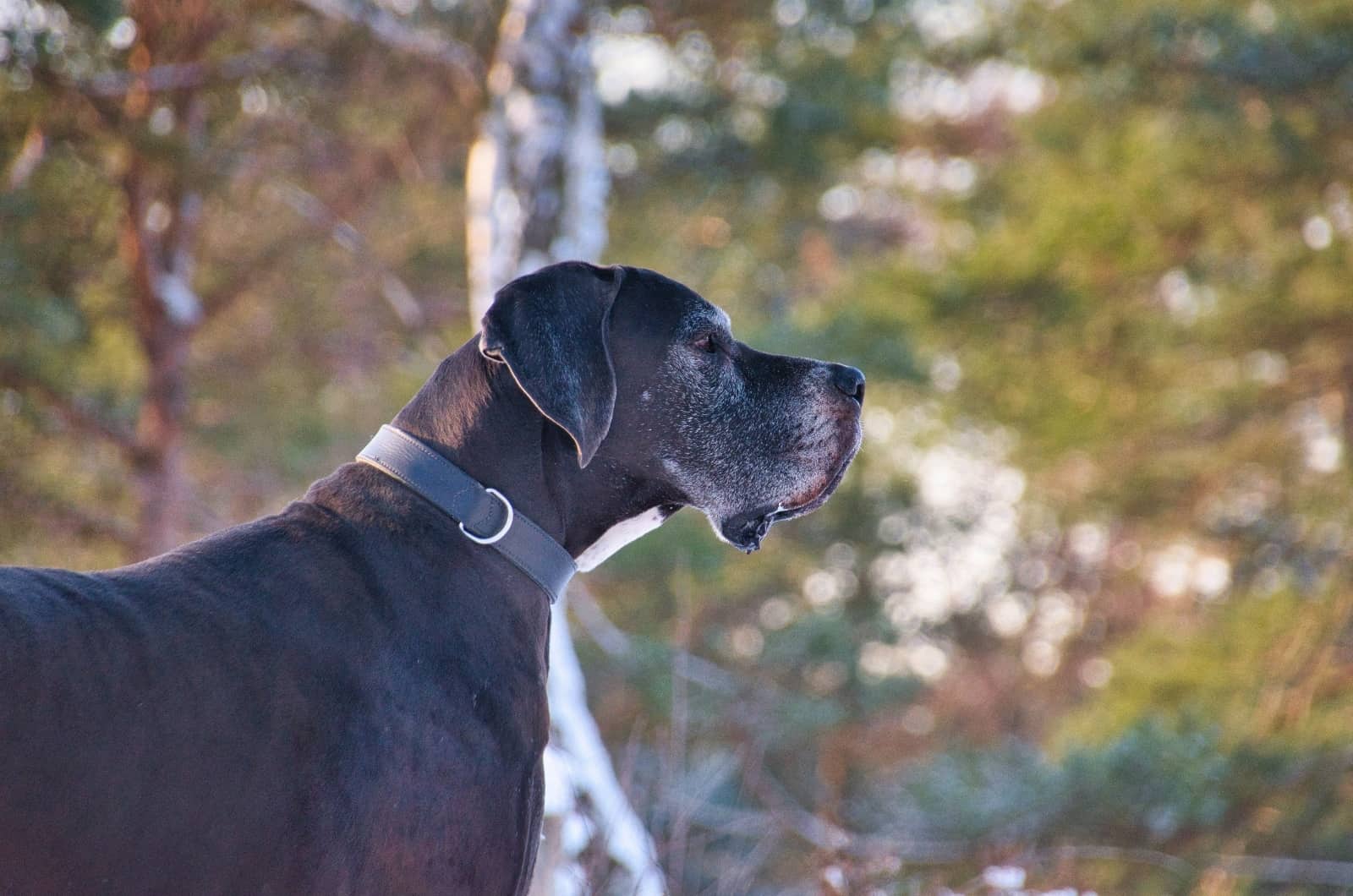
If you have noticed obesity in your dog you are probably wondering: How is it possible that my Great Dane is overweight?
Well, this didn’t come out of nowhere and for no specific reason. Read the following possible causes of overweight in your large dog.
1. Increased Food Intake
The most common cause of obesity in Great Danes is, of course, too much and too frequent food intake.
Maybe you didn’t even feed your dog too often, but you allowed him unlimited access to food. It is very likely that any dog will eat food as soon as it sees it, even if it has just eaten and even if it is not hungry at all.
Also, you may feel that you have been feeding your dog the recommended number of daily meals, but too many calories in one meal has caused your Great Dane to become overweight.
All owners love to please their furry friend with their favorite treats, but long-term overfeeding with high-calorie treats (no matter how well-intentioned you are) can cause the dog to become overweight.
Furthermore, almost every owner at least sometimes shares his meal with his dog. If this is not done often, it will most likely not cause any major consequences for the dog, but if you often share human food with the dog, which also has a high fat content – it is very possible that this will result in a fat Great Dane.
2. Lack Of Exercise
Every dog needs exercise on a daily basis to stay happy and healthy. An overweight dog might lack exercise – so, this means a dog eats normally, but does not spend any of the calories he takes in.
The way of keeping a Great Dane at optimal weight is to provide it with high-quality dog food, and enough exercise on a daily basis. If a dog lacks any of these two – it is likely to become obese.
Exercise amount depends on the dog’s activity levels, age, and general lifestyle. Some dogs will need a 30-minute walk per day, while some will need several different forms of exercise to stay fit.
Great Danes are energetic and large dogs that need a lot of exercise to stay at optimal body weight.
3. Neuter/Spaying
Many dog owners will decide to spay or neuter their dogs, and this can have positive effects on the dog’s health and behavior. However, in some cases, neutering or spaying can cause a dog to become overweight.
A dog might be in pain a couple of days after neutering, but this procedure causes the change in the dog’s hormones and metabolism, which can have far-reaching consequences for a dog’s weight.
This is why veterinarians might advise a change in diet for neutered/spayed dogs.
4. Medical Problems
In some cases, a certain health problem can cause obesity in Great Danes. For example, a fat dog may suffer from hypothyroidism, that is, an insufficiently active thyroid gland that does not produce enough thyroid hormones, which are responsible for the dog’s metabolism.
A sick dog is slower and does not use the same amount of energy as a healthy dog, and if the owner does not notice that something is wrong with the dog, he will continue to feed it the same amount of food. This will eventually lead to obesity in the dog.
Cushing’s disease is another medical condition that can cause obesity in dogs. This is a disease of the adrenal gland, where this gland constantly produces too much cortisol, which causes the dog to have an increased appetite.
In addition, dogs with this disease become sluggish and reluctant to move – which leads to fat deposits forming, especially on the dog’s belly.
If your dog is taking some medication, this can also lead to increased appetite and weight gain.
What Is Overweight For A Great Dane?
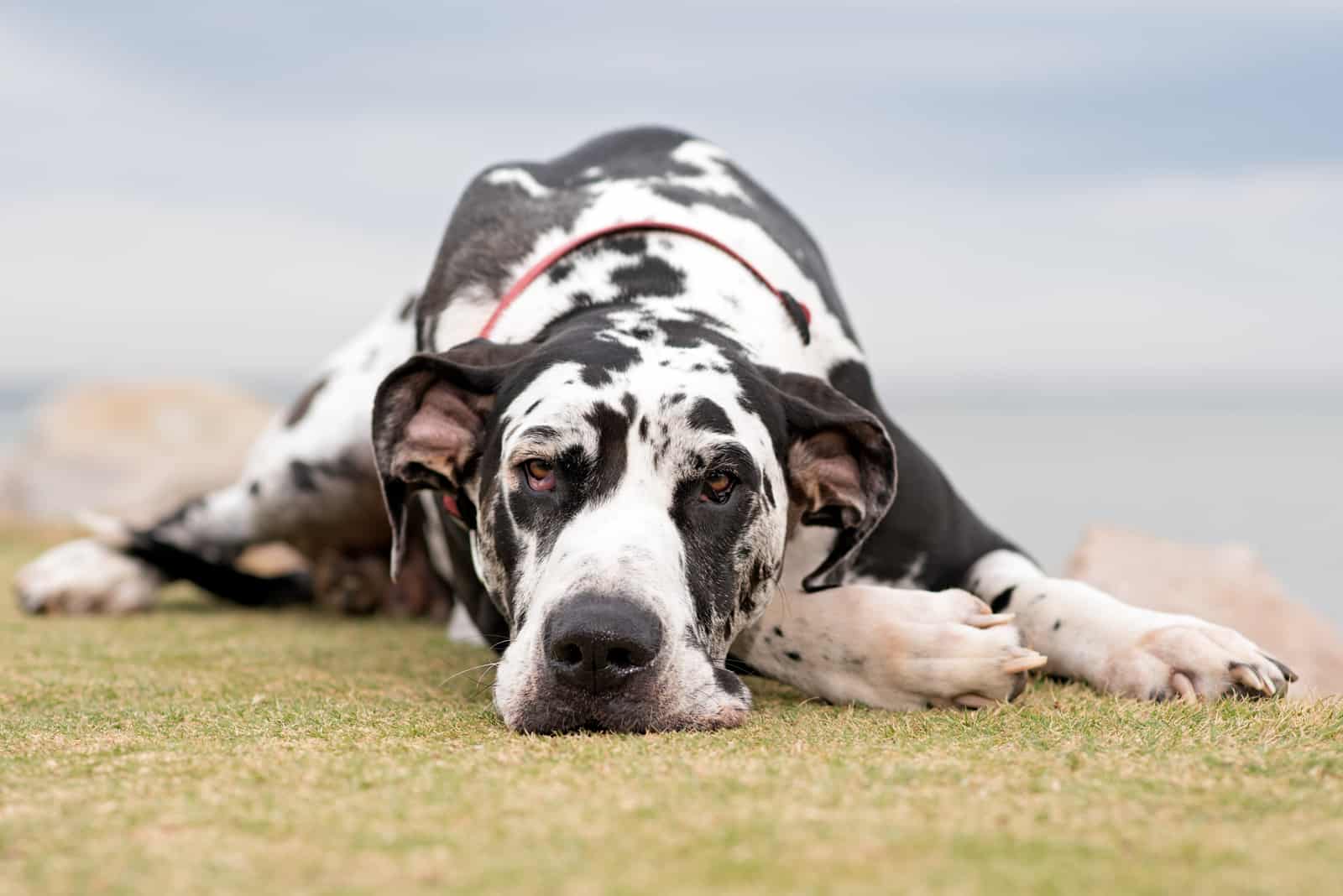
In general, a dog can be said to be overweight if its body weight is 5 to 20% above the recommended weight for the breed.
First, you should know how heavy the Great Dane is supposed to be.
According to the Great Dane growth chart, an adult male Great Dane should weigh 140 to 175 pounds, while female Great Danes are usually lighter and weigh 110 to 140 pounds.
So, if your dog’s weight is not in this desirable range, this will indicate that your Great Dane is overweight. But, there are also some other signs that your dog is struggling with obesity.
For example, a fat Great Dane will be less active, which might be strange for most owners of this dog, since Great Danes are normally energetic.
Also, the dog could become out of breath more often, and may want to lie down to rest during the walk.
If your Great Dane is not underweight or overweight, it should not have a visible rib cage, but, if you can no longer feel the dog’s ribs and spine under your hand, and his waistline is almost invisible – your Great Dane is fat.
What Are The Health Problems Associated With Being Overweight?
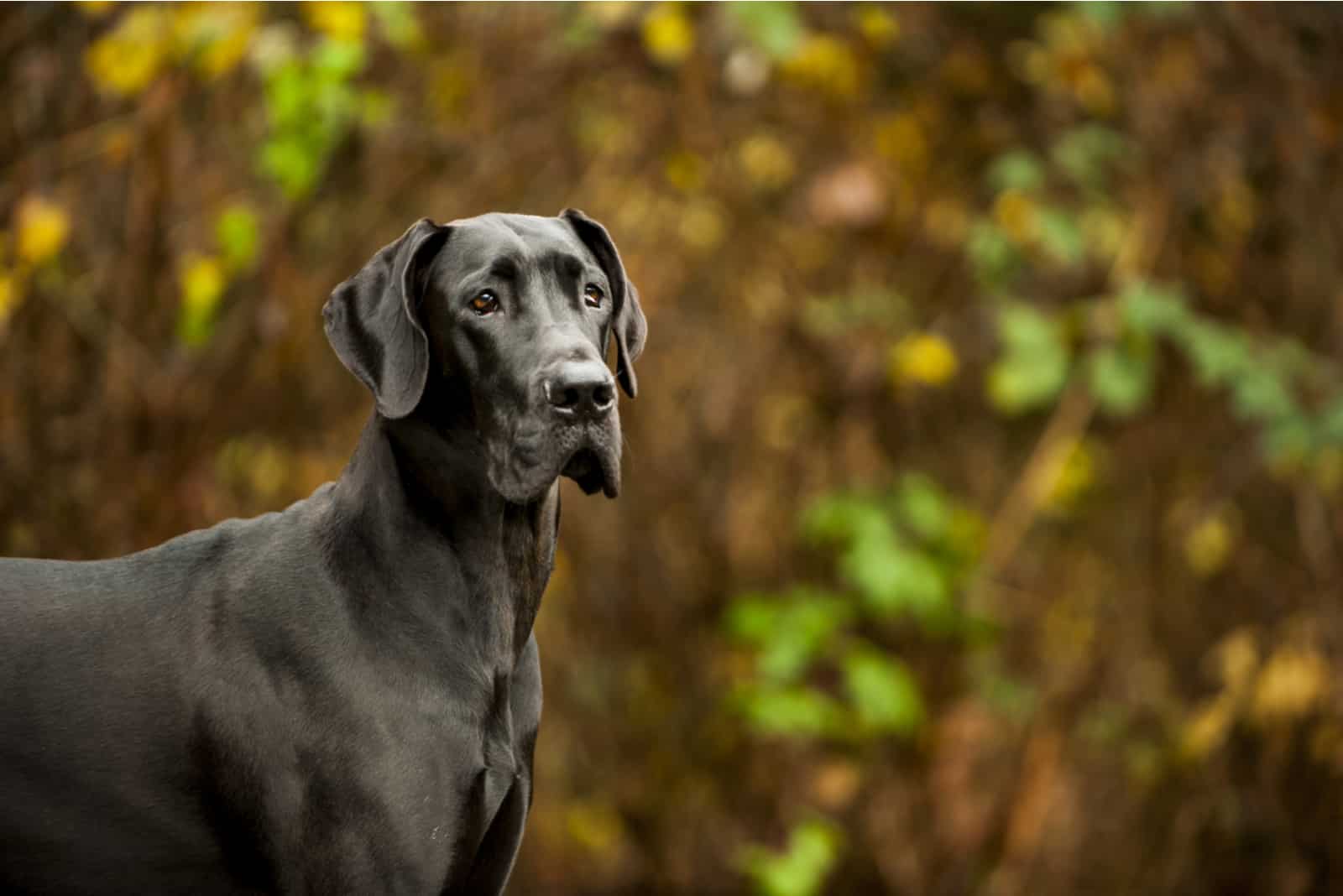
Overweight dogs can develop certain health issues, and, the best would be to prevent your dog ever becoming obese. However, all Great Dane owners should know what health problems obesity might cause.
Breathing Problems
A dog that has an increased body mass will have a greater need for oxygen. Also, if your Great Dane is overweight for its age, fat deposits in its chest cavity will increase.
Since a fatter dog will need more oxygen and its breathing space will be narrowed, an obese dog is very likely to develop breathing problems. Fatter dogs are generally less livable, move less, and tire more quickly. All this significantly reduces the dog’s quality of life.
Joint Pains
Obesity leads to movement and joint problems in both young and adult Great Danes. In young dogs that are still developing, excessive food intake can cause orthopedic damage that may even remain irreparable.
Adult dogs that are overweight put too much wear and tear on their joints and ligaments, which can cause disc damage and arthritis.
A dog with joint pain will move less, which means it will use less energy, which will ultimately cause further weight gain. So, your Great Dane could find himself in a vicious cycle of being overweight.
Heart Disease
Obesity in dogs can cause heart disease, or, if the dog was prone to developing this disease, obesity can further encourage it.
In addition, fat dogs often have problems with high blood pressure. The excess energy that obese dogs have is stored in the form of fat everywhere in the dog’s body, including in the dog’s organs such as the heart.
Such fat deposits do not allow the dog’s organs to function normally, and they become burdensome. This condition can cause long-term consequences, such as damage to blood vessels, as well as a fatal outcome.
How To Help An Overweight Great Dane?
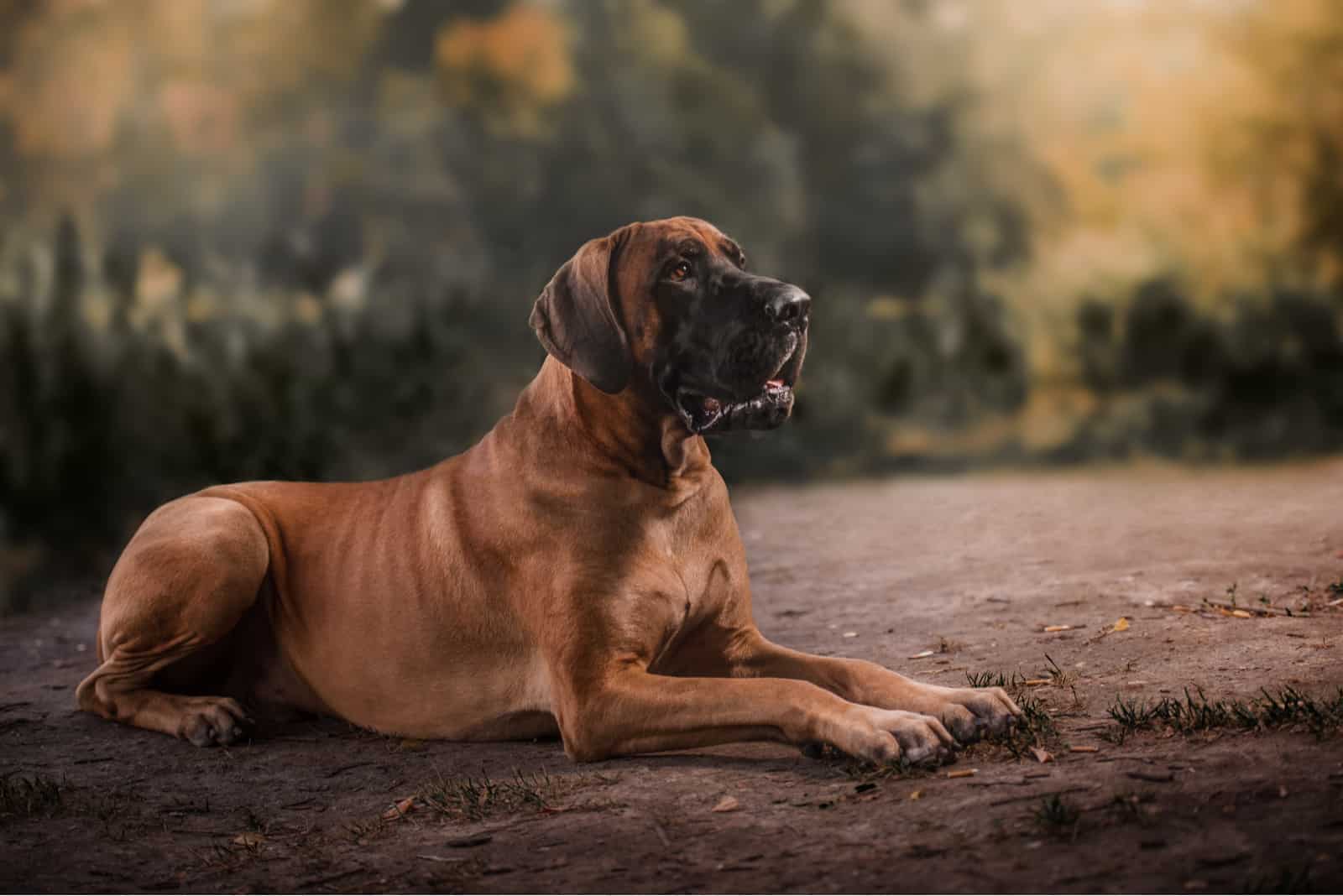
One of the prerequisites for a dog’s well being is keeping it at a healthy weight. But, even if your Great Dane puppy now has a problem with an excess weight, this does not mean there is nothing you can do to help.
Unfortunately, this large breed of dog has a short lifespan, that is estimated at 8 to 10 years. So, Great Danes owners should do their best for their dogs not to develop any severe health conditions that might additionally shorten this dog’s life expectancy.
Now, let’s see what are some essential steps to help your dog that has put on some extra weight.
1. Decrease The Dog’s Daily Food Amount
The first thing to do to help get the Great Dane’s weight back to normal is to decrease the dog food intake.
Of course, your dog should still have his normal daily meals, but you should make sure that this food is not too rich in fats, and that is in accordance with your dog’s age and energy levels.
In some cases, dog owners will even have to completely change their dog’s diet. Maybe the pet food you are feeding your Great Dane is just not the right choice for this giant breed.
Also, ensure you don’t leave the food available to your Great Dane at all times. An adult Great Dane should have 2 daily meals.
We suggest you first consult a vet on the perfect diet for your dog. Also, you can find some useful advice in our article on the Great Dane feeding chart, and on the best dog food choices for Great Danes.
You should always and only use high-quality dog food for your Great Dane.
2. Increase The Dog’s Physical Activity
A Great Dane needs an hour or even two hours of exercise per day. Of course, the exercise amount will depend on the dog’s age; a dog 6 months of age will not need as much exercise as an adult Great Dane.
Since overeating will cause your large breed dog to become listless and disinterested in physical activity, this could further exacerbate the problem of obesity. Therefore, as soon as you notice that your Great Dane is overweight, you should increase its physical activity.
To begin with, take your dog for a long walk every day. How often we walk our dogs is very important for creating a bond with the dog, for its mental alertness, but also for maintaining an optimal body weight.
You should not immediately start with demanding physical exercises, since it is possible that an obese dog breathes more difficult and has significantly less energy.
After a few days of longer walks, you can slowly start playing fetch with your dog, running, or hiking. When your dog is back in shape, it will again participate in all activities with ease and enjoyment and will make you take it to the dog park.
3. Consult A Vet
An essential step in helping your Great Dane lose weight is consulting a veterinarian. The vet will perform a basic examination and determine whether your dog has a certain health problem that has caused him to become overweight.
Don’t worry – even if your dog is sick, there are ways for a vet to help him. If the vet doesn’t determine any health issue in your dog, he will advise you on the best weight loss plan for your pet.
Once you have the best medical advice from your vet, you will be ready to help your dog lose that extra pounds.
4. Take This Problem Seriously
Having a fat Great Dane might sound like something that only happens to other people – but, you should not think like that. Maybe your dog will soon develop a weight gain problem, and you will be the one who needs to help him get on the right track again.
Furthermore, all your family members should also be included in this process. If on some days you will be too busy to take your Great Dane for a walk, I am sure some of your family members will have time to do this.
Also, you should not give your dog a treat with the approach: It is just one treat. It can’t do any additional harm to the dog, right?
Wrong! It is not good to continue giving treats to a dog that has a weight problem. You need to focus on the dog’s healthy diet and exercise to put your dog on a healthy weight as soon as possible.
Obesity is a serious condition that might lead to many health problems, so, we ask you to take this problem seriously, and to behave responsibly, since you are the one who should take care of your Great Dane’s health and well-being.
Final Thoughts
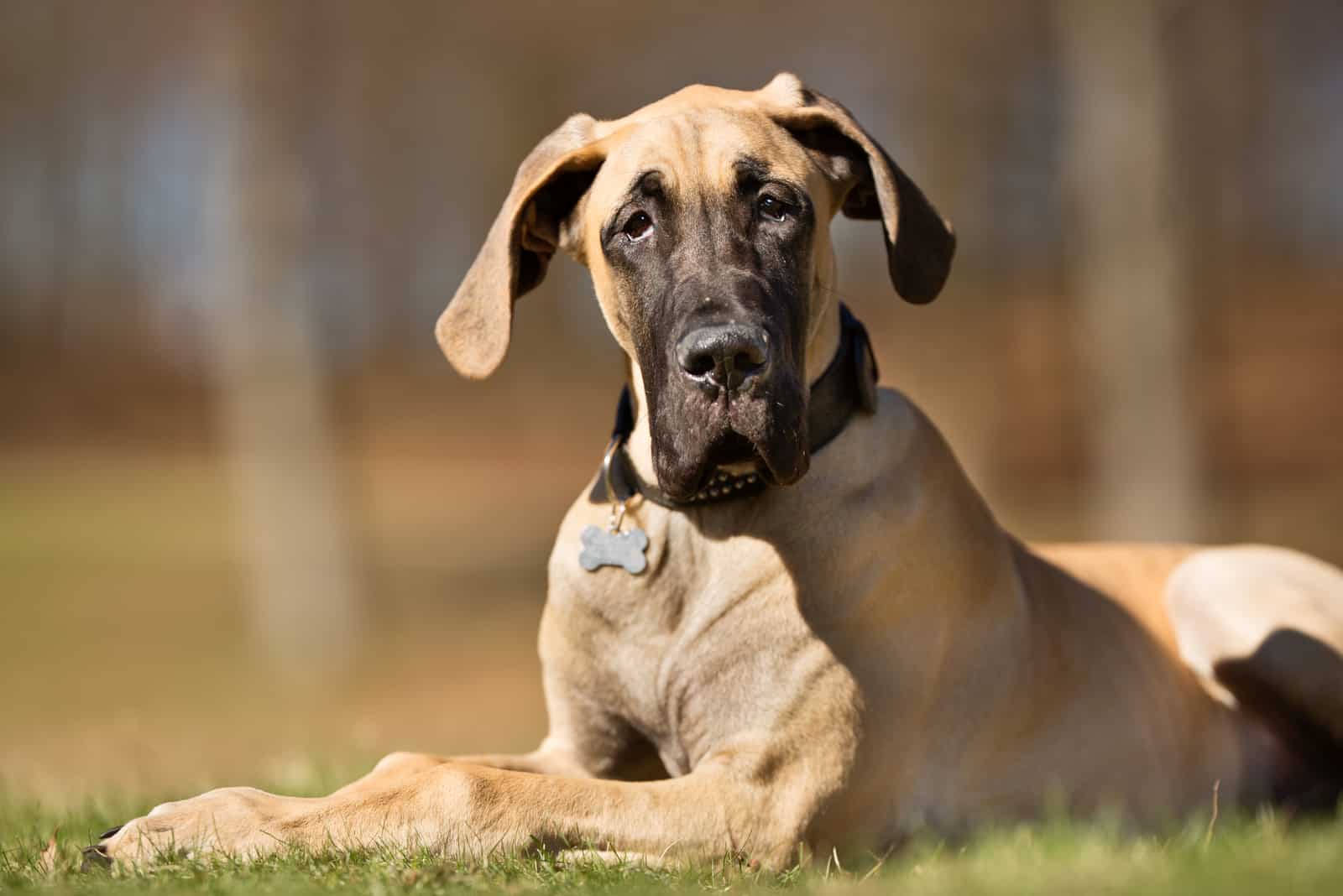
Great Danes are elegant and strong dogs that should be fit and muscular. However, not all these dogs have an optimal body weight – some dog owners will encounter a fat Great Dane issue.
Extra weight can be dangerous for any dog; additional body weight can cause severe health problems, such as heart disease, breathing problems, and joint problems.
Also, overweight dogs are usually disinterested, lethargic, and do not show the same desire for social contacts as before.
Great Danes in general have a shorter lifespan, and this is why we should cherish every moment spent with this large dog even more. Any health problem can additionally impact this dog’s life expectancy in a bad way.
This is why we should keep our Great Danes at optimal weight, and the best way to do this is feeding them with high-quality dog food, and providing them with enough physical exercise.
Remember – only a healthy dog is a happy dog!
Read Next:
• How Much Does Great Dane Cost? Breaking Down The Costs
• Great Dane Ear Cropping: Why (Not) Do It?

